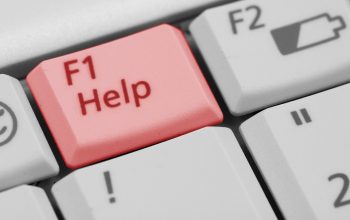Christmas is creeping up, for many a time of joy, but for some a time of dread and debt… the...
What is debt? Simply put, it’s what you have when you borrow money and are expected to repay it. Whether that’s 50p for a bar of chocolate because you left your wallet at home, or £150,000 to buy a house.
Think of the word ‘debt’ and chances are, that all the negative connotations associated with the word will also spring to mind.
In truth though, as with many things, things aren’t so black and white when it comes to borrowing. Debt isn’t automatically bad, but nor is it always good. It all depends on your approach to finance, your skill in managing your money and how your circumstances may change over time.
Bad debt – What should I be wary of?
Spending on Credit Without Thinking About Repayment
Borrow money and you’re in debt until it’s repaid, it’s that simple. Low interest rates and the ease of borrowing make it very easy to have what you want now and pay for it later. Unfortunately, in the excitement of instant gratification, the ‘paying for it later’ part is something that’s easy to forget. A one off splurge might not do too much harm, but making a habit of spending money you don’t have, without considering how it will be repaid is a recipe for disaster.
Not Keeping an Eye on Fees and Charges
If you’re already in the habit of spending more than you have, be wary of how much it costs to live beyond your means. When you use credit facilities like overdrafts and credit cards, you’ll not only have to repay what you’ve borrowed, you’ll also have to pay for the convenience of using these facilities. Such fees can get very expensive, especially if you exceed your overdraft, use store cards or high-interest credit cards.
Borrowing to pay back other lenders
Once you’ve spent too much and are stuck in a cycle of debt, it can be tempting to pay a bill from one lender, by borrowing from another. If the interest rate is more favourable then this might be worthwhile, but otherwise, all you’re doing is transferring debt from one lender to the other. You’re likely to have been charged for borrowing in the first instance and now you’re having to borrow more to pay it back, probably being charged for the second lot of borrowing too. Ultimately this means that you still owe the money, but now that you’ve been charged to move the debt, you’ve added those charges to the debt and now owe more. What will you do next time? The same again maybe? Clearly, this isn’t sustainable.
Good Debt – When is borrowing worthwhile?
While poorly considered debt can and does get people into a great deal of trouble, credit, when used responsibly can be a useful tool for smoothing out the financial bumps in the road.
Buying a home
We all need somewhere to live. While property is expensive to buy, it’s arguably more expensive to rent. Borrowing money to buy somewhere to live, which should, in the long run, be worth at least what you paid for it, is probably the best example of good debt. You’re unlikely to be accepted for a mortgage without it being established that you can afford the repayments and at the end of the loan, you’ll be left with a worthwhile asset.
Borrowing to build your credit score
Borrowing at some point is a fact of life. But the rate at which you borrow isn’t fixed. As mentioned earlier, lenders generally charge for use of their credit facilities and the interest rate they’ll charge varies according to how likely you are to pay back without causing the lenders problems. For people who have a history of paying bills on time, of living within their means and being responsible with their borrowing, there are numerous lenders competing with each other to lend money and charging lower rates to do so. These people are a ‘sure bet’ so even though not much money is being made on them per £1 lent, they’re able to borrow more and lenders can be certain they’ll make payments. On the other side of things, people who have less squeaky clean credit histories, are considered more of a risk. Credit may be refused on the basis that there isn’t considered to be a reasonable chance of the debt being repaid, or if credit is allowed, less will be lent and the charges per £1 of debt will be considerably higher in recognition that lenders are taking a risk.
If you’ve never borrowed money though, you’re an unknown quantity to prospective lenders. Having no credit history isn’t as disadvantageous as having a poor credit history, but risk-averse lenders have no information on whether they should lend you money and how much of a risk you’ll be. This might not be a problem if you don’t intend on borrowing. However, consider that at some point in the future you may need to take out a loan for a large amount and at a reasonable rate of interest (a mortgage for instance). This is something for which you’ll need a solid credit score to get the best rates. With this in mind, building up a history which shows responsible financial behaviour can help you save money in the long run as all the best deals will be open to you when you need them.
Borrowing to invest in yourself
At the moment, thousands of students have taken out student loans which can amount to tens of thousands of pounds. For the most part, this is debt which they currently have no means of repaying.
While student debt may bear some of the hallmarks of bad debt, it’s widely understood that a University education is the gateway to markedly higher future earning potential. So eventually that expensive education will not only pay for itself due to higher earnings, but once the debt is paid, graduates will continue to enjoy those higher earnings and the increased spending power they bring.
Can Good Debt Become Bad Debt?
No matter how carefully planned and responsibly sourced your debt is, life occasionally puts obstacles in the way. A sudden change of personal circumstances can transform comfortably affordable debt into an inescapable burden.
Similarly, small mistakes or extravagances repeated a few times too often can tip the scales from ‘barely affordable’ to unaffordable and once that slippery slope has been stepped on, it’s very hard to step off again.
In either circumstance, acting fast is essential before matters get worse.
Escaping the burden of bad debt
Unaffordable debt is a source of misery for many, but there’s usually a solution and the sooner help is sought, the more potential solutions will be available. Don’t spend restless nights worrying about your finances, take positive affirmative action and seek help from Lines Henry. We have the knowledge and experience gained from decades spent helping those in circumstances just like yours to see the light at the end of the tunnel and get their lives and finances heading in the right direction.
Speak to us, we can help.



